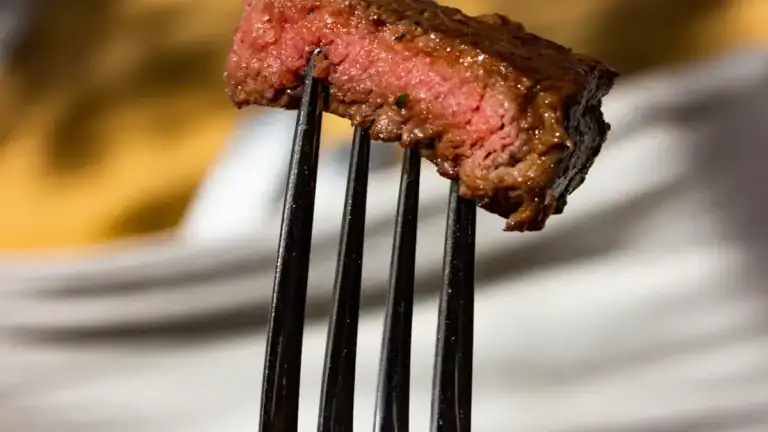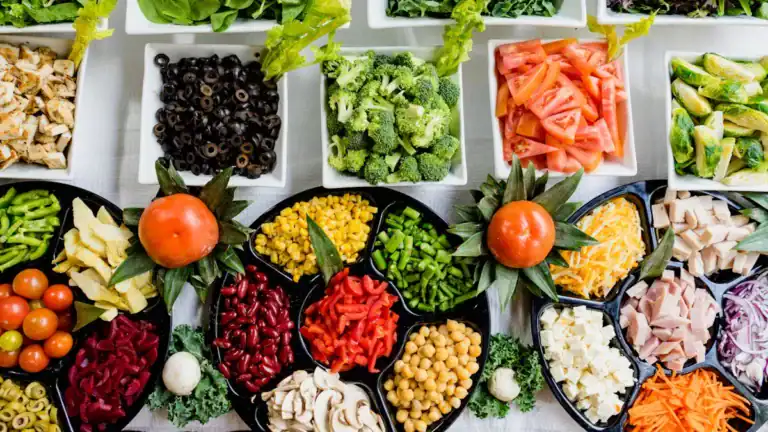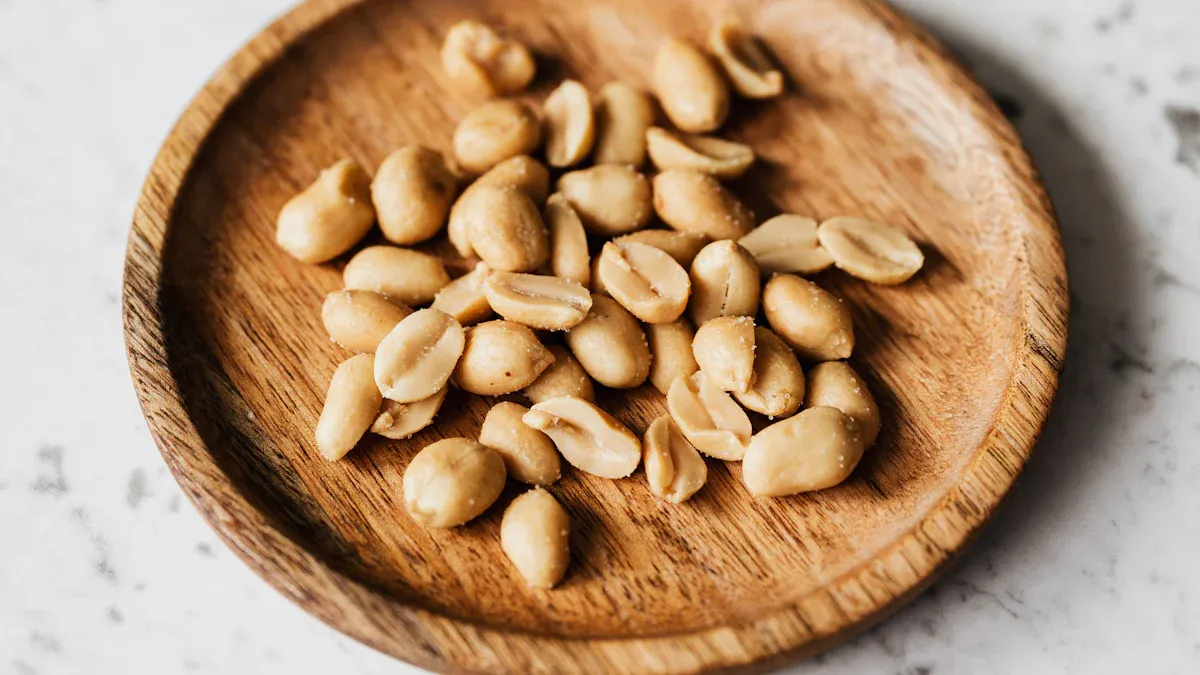
You might wonder what makes pine nuts so special. These tiny seeds pack a punch for your health. The following is some research I came across regarding this.
Take a look at their nutrition:
Nutrient | Amount | Daily Value |
|---|---|---|
Magnesium | 0.50 mg | 0 % |
Vitamin E | 0.02 mg | 0 % |
Protein | 0.03 g | 0 % |
People around the world love pine nuts. The market keeps growing every year.
Pine nuts market size may reach $4.63 billion by 2029.
More folks choose pine nuts for plant-based diets.
Try pine nuts for energy, taste, and wellness. You will discover Pine Nuts Benefits that might surprise you.
Honestly speaking, I eat this type of nut because it works as a brain booster for me.
What Are Pine Nuts?
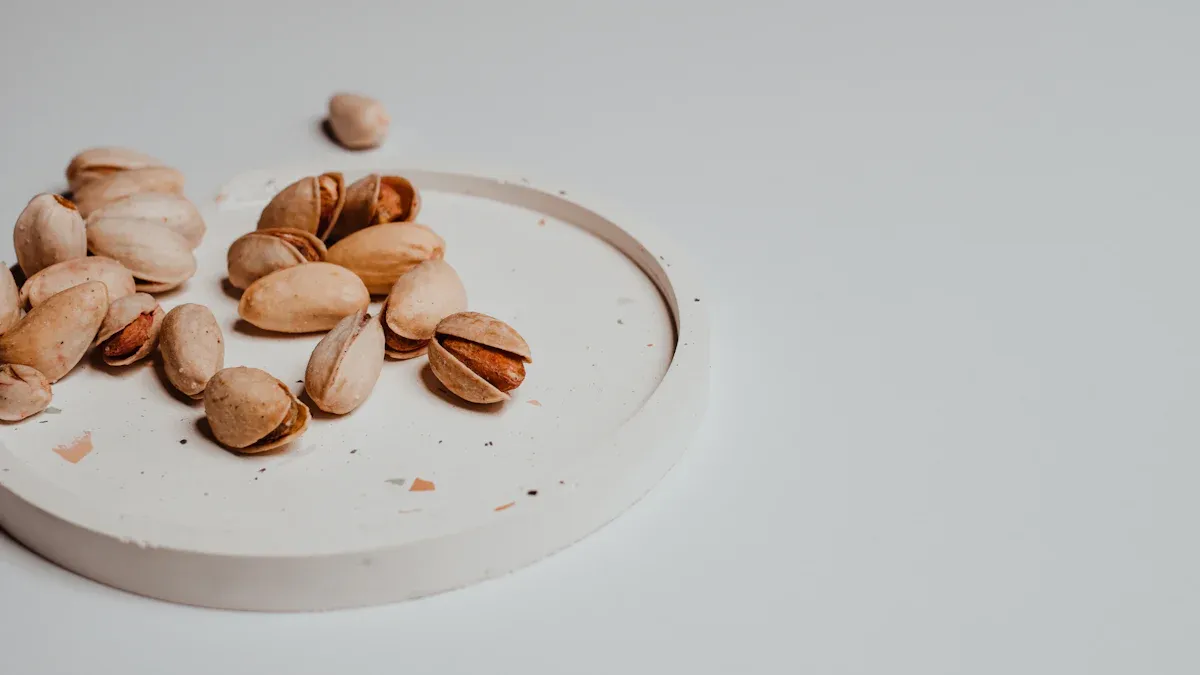
Origin & Types
You might think pine nuts come from just one kind of tree, but that’s not true. People harvest pine nuts from several species of pine trees around the world. Each type grows in different places and brings its own flavor and nutrition. Take a look at this table to see where some popular pine nuts come from:
Pine Tree Species | Cultivation Locations |
|---|---|
Korean pine (Pinus koraiensis) | Northeast Asia |
Chilgoza pine (P. gerardiana) | Western Himalaya |
Siberian pine (P. sibirica) | Russia, Mongolia, Afghanistan |
Stone pine (P. pinea) | Europe |
Swiss pine (P. cembra) | Europe (small extent) |
Singleleaf pinyon (P. monophylla) | United States |
Colorado pinyon (P. edulis) | United States |
You can find pine nuts in markets from Asia to Europe and the U.S. The global market keeps growing, with values reaching billions of dollars. Pine nuts only make up about 1% of all tree nut production, so they’re pretty special. Some forests face challenges from over-harvesting and climate change, which makes these nuts even more valuable.
Culinary Uses
You’ll see pine nuts in many kitchens around the world. They add a rich, buttery taste to dishes. Here are some popular ways people use pine nuts:
Tossed into Italian pesto with basil, garlic, olive oil, and Parmesan
Sprinkled on salads or roasted vegetables for crunch
Mixed into desserts like cookies and caramel shortbread
Added to savory stuffings and pilafs
Cuisine Type | Common Uses |
|---|---|
Italian | Pesto, salads, desserts like pinoli cookies |
Southwestern U.S. | Savory stuffings, pilafs |
General | Toasted as snacks, in fruit salads, ground into flour for desserts |
You can toast pine nuts for a snack or grind them into flour for baking. Some cultures use pine nuts in traditional medicine, too. For example, Russian people use pine nut oil for digestive health, and Indigenous groups in the Southwest harvest pine nuts for food and natural remedies.
Pine Nuts Nutrition

Key Nutrients
When you grab a handful of pine nuts, you’re getting a snack loaded with nutrients. These tiny seeds pack a lot into a small serving. Take a look at what you get in 100 grams:
Nutrient | Amount per 100g | % Daily Value |
|---|---|---|
Calories | 715 | |
Total Fat | 68g | 105% |
Saturated Fat | 5g | 24% |
Cholesterol | 0mg | 0% |
Sodium | 2mg | 0% |
Total Carbohydrate | 13g | 4% |
Dietary Fiber | 4g | 13% |
Total Sugars | 4g | |
Protein | 14g | |
Calcium | 16.0mg | 1% |
Iron | 5.5mg | 30% |
Potassium | 597mg | 15% |
Phosphorus | 575.0mg | 57% |
Vitamin C | 0.8mg | 1% |
Vitamin E | 9.3mg | 62% |
Magnesium | 251.0mg | 60% |
Zinc | 6.5mg | 46% |
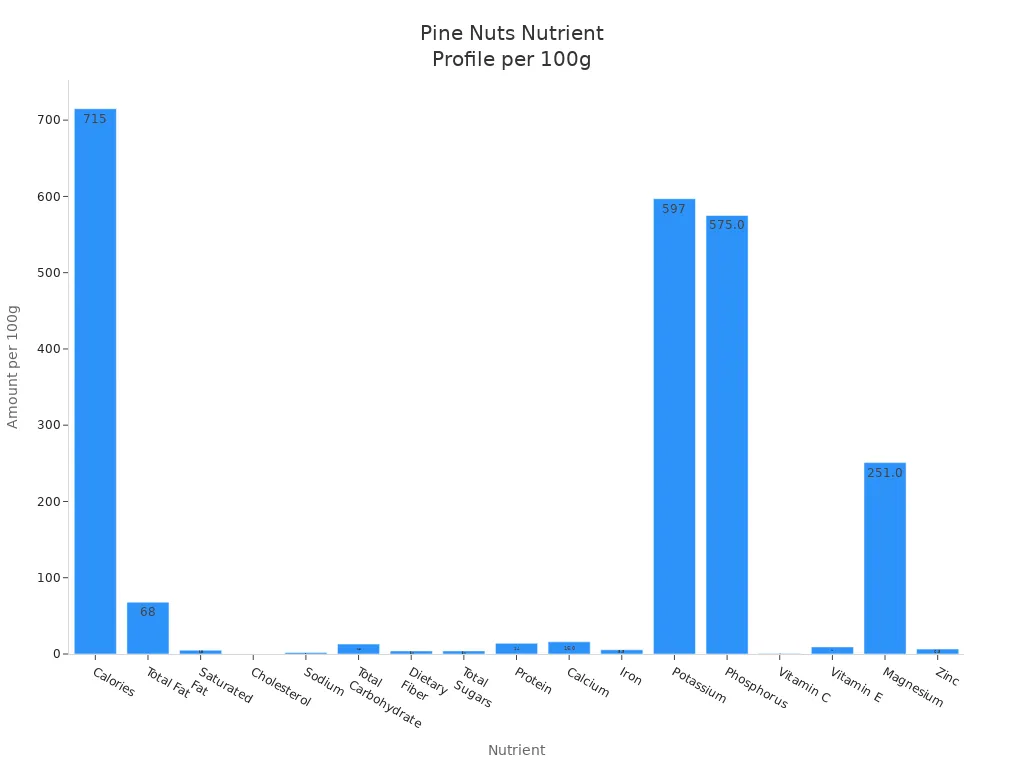
You’ll notice pine nuts are high in magnesium, vitamin E, and iron. These nutrients help your body stay strong and healthy. Magnesium supports your muscles and nerves. Vitamin E acts as an antioxidant, protecting your cells. Iron helps carry oxygen in your blood.
Healthy Fats & Protein
Pine nuts stand out for their healthy fats. You get a mix of polyunsaturated and monounsaturated fats, which are good for your heart. Here’s how the fat breaks down:
About 50% of the fatty acids are polyunsaturated, mostly linoleic acid.
Around 40% are monounsaturated, mainly oleic acid.
Only 10% are saturated fats.
If you’re looking for omega-3 fatty acids, pine nuts offer a small amount, but they shine with omega-6 and omega-9. You get 9.5g of polyunsaturated fat and 5.3g of monounsaturated fat per ounce. The saturated fat is low, just 1.4g per ounce.
Let’s see how pine nuts compare to other nuts:
Nut Variety | Calories (kcal) | Protein (g) | Total Fat (g) | Saturated Fat (g) | Monounsaturated Fat (g) | Polyunsaturated Fat (g) | Carbs (g) | Fiber (g) |
|---|---|---|---|---|---|---|---|---|
Almonds | 165 | 6 | 14 | 1 | 9 | 3.5 | 6 | 4 |
Pine Nuts | 190 | 4 | 19 | 1.5 | 5 | 10 | 4 | 1 |
Walnuts | 185 | 4 | 18 | 1.7 | 2.5 | 13 | 4 | 2 |
You get a decent amount of protein from pine nuts, though not as much as almonds or pumpkin seeds. One quarter-cup serving gives you 4.5 grams of protein. That’s enough to help you feel full and support your muscles.
Tip: If you want a snack that’s rich in healthy fats and offers a bit of omega-3 fatty acids, pine nuts are a smart choice. They’re tasty, versatile, and packed with nutrition.
Pine Nuts Benefits
Heart Health
You might not realize how much pine nuts can do for your heart health. These tiny seeds pack a powerful punch when it comes to keeping your heart strong. The healthy fats in pine nuts, especially monounsaturated fats, help lower LDL cholesterol. When you eat foods rich in these fats, you promote heart health and reduce your risk of heart disease.
Take a look at what scientific studies have found about pine nuts benefits for your heart:
Study Focus | Findings |
|---|---|
Blood Cholesterol Levels | Pine nut oil lowered blood cholesterol compared to safflower oil. |
Blood Pressure | Pine nut oil decreased age-associated increases in blood pressure in rats. |
Endothelial Function | Pine nuts improved endothelial function and reduced plasma fibrinogen. |
Histological Structure | Rats fed 15% pine nuts showed normal aorta structure compared to those on a high-fat diet. |
You get more than just healthy fats. Pine nuts also contain antioxidants like vitamin E, which protect your cells from damage. These antioxidants help keep your blood vessels flexible and healthy. If you want to support your heart, adding pine nuts to your meals is a smart move.
Diabetes Support
If you’re looking for ways to improve blood sugar levels, pine nuts can help. Studies show that people who eat more nuts, including pine nuts, have better control over their blood sugar. One study found that people who ate the most nuts had lower fasting glucose levels than those who ate the least. That means pine nuts benefits go beyond just taste—they can help with diabetes management.
Other research shows that tree nuts, like pine nuts, help people with diabetes manage their condition. Pistachios and other nuts have improved blood sugar markers in people at risk for diabetes. When you include pine nuts in your diet, you give your body extra support for diabetes management.
You also get magnesium from pine nuts, which helps your body use insulin better. This mineral plays a key role in keeping your blood sugar steady. If you want to take charge of your health, pine nuts make a great addition to your meals.
Energy & Metabolism
Do you ever feel tired in the middle of the day? Pine nuts can give you lasting energy. These seeds are more calorie-dense than almonds, so you get more fuel per serving. You’ll find 19.5 grams of fat in just one ounce, which is higher than almonds. The fat in pine nuts, especially monounsaturated fats, helps you stay energized longer.
Here’s why pine nuts benefits stand out for energy and metabolism:
Pine nuts provide more calories per serving than many other nuts.
The high fat content, mostly monounsaturated fats, keeps your energy steady.
You get a boost that lasts, not just a quick spike.
Magnesium in pine nuts is crucial for maintaining normal blood pressure levels, which helps reduce the risk of hypertension and potentially lowers cholesterol levels. Additionally, diets high in magnesium are linked to lower risks of various cancers, indicating its role in overall metabolic health.
When you eat pine nuts, you support your metabolism and keep your body running smoothly. The combination of healthy fats, protein, and magnesium gives you the energy you need for your busy day. If you want to feel your best, try adding pine nuts to your snacks or meals.
You can see that pine nuts benefits reach far beyond flavor. They promote heart health, help with diabetes management, and give you lasting energy. If you want to boost your health, pine nuts are a smart choice.
Health Benefits for Body & Mind
Bone Strength
You might not think about your bones when you grab a handful of pine nuts, but these seeds help keep them strong. Pine nuts contain magnesium, which helps your body use vitamin D for better calcium absorption. You also get calcium and phosphorus, both important for building and maintaining healthy bones and teeth. Vitamin E in pine nuts reduces inflammation and supports bone cells. Omega-3 fatty acids add extra protection by fighting inflammation.
Magnesium helps your body absorb calcium.
Calcium and phosphorus build strong bones and teeth.
Vitamin E supports bone cell health.
Omega-3 fatty acids protect bones from inflammation.
Immune Boost
If you want to keep your immune system strong, pine nuts can help. Vitamin E acts as a powerful antioxidant, protecting your cells from damage. It also fights inflammation, which keeps your immune system working well. Pine nuts have a high antioxidant content, including vitamin E, which helps reduce oxidative stress. This is important for keeping your body’s defenses up.
Vitamin E protects cells from oxidative stress.
Antioxidants in pine nuts help fight inflammation.
A strong immune system depends on reduced oxidative stress.
Eye Health
Your eyes need special nutrients to stay healthy. Pine nuts are rich in lutein, an antioxidant that helps prevent age-related macular degeneration. Lutein protects your eyes from damage and keeps your vision sharp as you get older. Adding pine nuts to your diet gives your eyes the support they need.
Mental Wellness
You might be surprised to learn that pine nuts can boost brain health. Studies show that eating polyphenol-rich foods, including pine nuts, helps with memory and executive function. Omega-3 fatty acids improve learning and memory recall. Magnesium supports working memory and cognitive processing. Tryptophan in pine nuts may lower anxiety and depression symptoms.
Study Year | Findings | Key Nutrients | Source |
|---|---|---|---|
2018 | Better memory retention and executive function with polyphenol-rich foods | Polyphenols | Nutrients |
2021 | Improved synaptic plasticity for learning and memory recall | Omega-3 Fatty Acids | Journal of Lipid Research |
2020 | Better working memory and cognitive processing with higher magnesium | Magnesium | Frontiers in Aging Neuroscience |
2022 | Lower anxiety and depression symptoms with tryptophan-rich foods | Tryptophan | Nutritional Neuroscience |
You can see that pine nuts offer health benefits for your bones, immune system, eyes, and mind. Try adding them to your meals for a tasty way to support your body and boost brain health.
Appetite & Weight
Satiety Effect
Have you ever grabbed a snack and felt hungry again just an hour later? Pine nuts can help you stay full longer. When you eat pine nuts, your body gets a mix of healthy fats, protein, and fiber. This combination works together to keep you satisfied. Here’s how pine nuts help you feel full:
Pine nuts influence leptin, a hormone that tells your brain you’re full.
Pinolenic acid in pine nuts triggers hormones like CCK and GLP-1, which signal satiety.
The fats and protein help stabilize your blood sugar, so you don’t get sudden cravings.
Monounsaturated fats in pine nuts boost fat burning, which can lower your appetite.
The blend of nutrients in pine nuts keeps you feeling satisfied after eating.
If you want a snack that helps you avoid mindless munching, pine nuts are a smart choice. You’ll notice you feel full and energized for hours.
Weight Management
You might wonder if eating nuts will make you gain weight. Studies show that pine nuts, along with other nuts, actually support weight control. People who eat more nuts tend to have a lower risk of becoming overweight or obese. Clinical trials found that nuts do not cause weight gain. In fact, higher nut intake often leads to reductions in body weight and body fat.
Nuts, including pine nuts, do not increase body weight in randomized controlled trials.
People who eat more nuts are less likely to gain weight over time.
The nutrients in pine nuts help your body use energy efficiently and signal fullness.
If you want to maintain a healthy weight, adding pine nuts to your meals can help. You get a tasty snack that supports your goals and keeps you feeling satisfied.
Skin & Hair
Skin Health
You want your skin to look fresh and healthy, right? Pine nuts can help you with that. These tiny seeds are packed with nutrients that support your skin from the inside out. When you eat pine nuts, you give your skin a boost of vitamin E. This vitamin helps fight free radicals, which can cause your skin to age faster. You get protection against wrinkles and dullness.
Here’s what makes pine nuts great for your skin:
Vitamin E helps prevent premature aging by fighting free radical damage.
Antioxidants like gallocatechin, lutein, lycopene, catechin, carotenoids, and tocopherols work together to reduce oxidative stress.
These nutrients help your skin stay smooth and bright.
If you want a natural way to keep your skin glowing, try adding pine nuts to your snacks or salads. Your skin will thank you!
Hair Support
Do you wish your hair felt stronger and looked fuller? Pine nuts can help with that too. You get a good amount of vitamin E when you eat pine nuts. This nutrient acts as a powerful antioxidant, protecting your hair from damage. Research shows that vitamin E can even increase hair count.
Here’s how pine nuts support your hair:
Vitamin E helps keep your scalp healthy.
Antioxidants protect your hair from breakage.
Studies suggest vitamin E may help your hair grow thicker.
Next time you want to boost your hair’s strength, reach for pine nuts. You’ll notice your hair feels healthier and looks shinier.



